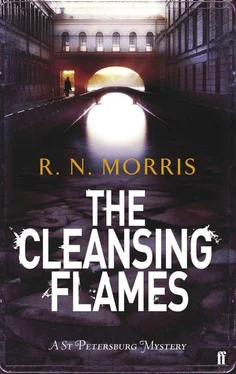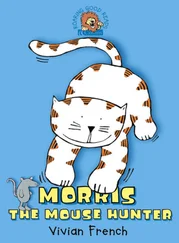R. Morris - The Cleansing Flames
Здесь есть возможность читать онлайн «R. Morris - The Cleansing Flames» весь текст электронной книги совершенно бесплатно (целиком полную версию без сокращений). В некоторых случаях можно слушать аудио, скачать через торрент в формате fb2 и присутствует краткое содержание. Год выпуска: 2011, ISBN: 2011, Издательство: Faber and Faber Fiction, Жанр: Исторический детектив, на английском языке. Описание произведения, (предисловие) а так же отзывы посетителей доступны на портале библиотеки ЛибКат.
- Название:The Cleansing Flames
- Автор:
- Издательство:Faber and Faber Fiction
- Жанр:
- Год:2011
- ISBN:0571259154
- Рейтинг книги:5 / 5. Голосов: 1
-
Избранное:Добавить в избранное
- Отзывы:
-
Ваша оценка:
- 100
- 1
- 2
- 3
- 4
- 5
The Cleansing Flames: краткое содержание, описание и аннотация
Предлагаем к чтению аннотацию, описание, краткое содержание или предисловие (зависит от того, что написал сам автор книги «The Cleansing Flames»). Если вы не нашли необходимую информацию о книге — напишите в комментариях, мы постараемся отыскать её.
The Cleansing Flames — читать онлайн бесплатно полную книгу (весь текст) целиком
Ниже представлен текст книги, разбитый по страницам. Система сохранения места последней прочитанной страницы, позволяет с удобством читать онлайн бесплатно книгу «The Cleansing Flames», без необходимости каждый раз заново искать на чём Вы остановились. Поставьте закладку, и сможете в любой момент перейти на страницу, на которой закончили чтение.
Интервал:
Закладка:
The image that his conscience imposed on him was very different. A little girl in a christening gown, her hands loosely folded around a painted egg, her eyes open but unseeing.
The Slavophiles
Two days later, Porfiry received a telegram from the authorities in Helsingfors. Apprentice Seaman Ordynov confirmed that the mysterious stranger who had watched him and his mates bring the body to the surface of the Winter Canal was the man identified as Kozodavlev in the Affair staff photograph.
‘So, Pavel Pavlovich, what do you say now? Kozodavlev was on the bridge. He was there watching, as though he expected the body to come to light now that the ice was melting. Furthermore, we have found the trace of a nihilist manifesto in his apartment. You must at least admit the possibility that he was involved in a revolutionary grouping and was on the verge of informing on it when he was killed.’
‘Of course. It is possible .’ Virginsky’s emphasis was intended to suggest that anything was possible.
‘And so, we may look further into his background?’
‘You do not need my permission. I believe we were waiting for the witness identification to come through. And now that we have that, it seems sensible to proceed.’
Porfiry’s face lit up. ‘Let us visit the Slavophiles then!’
*
If — thought Porfiry — one were to choose one’s politics based on the physical attractiveness of the proponents of this or that cause, then the radicals would certainly win out over the Slavophiles. For one thing, the men (for they were without exception male) who comprised the editorial staff of Russian Era and Russian Soil were markedly older than their counterparts at Affair . They were all heavily bearded. Their expressions, stern to the point of forbidding, created the distinct impression that they held a grievance against anyone who dared to cross their threshold. They looked out from the territory of their office on Liteiny Prospect with the same suspicion and hatred with which they looked out from Russia. According to their siege mentality, which was clearly visible in their faces, everything that came in from outside was inevitably evil and had to be repelled.
In other respects, the office was very similar to the one he and Virginsky had visited exactly a week ago. It was basically a domestic apartment converted to a business. There was a central arrangement of desks with hardly any space to move around them.
A facetious thought occurred to Porfiry as he sought to appease the automatic hostility of the room with a deep bow. He knew of many famous men who had begun their careers as radicals, only to become conservatives in later years. Did they, as the more reactionary views took hold on their minds, undergo a physical transformation to match their ideological one? Of course, they would have worked on their beards. But he was thinking of something more fundamental than that: a gradual rearrangement of the structure of their faces, inevitably a contraction, a hardening.
The oldest and most thickly bearded man in the room rose shakily to his feet. He was a frail figure, of slight build. His beard was white and divided into two points. He wore a soft velvet hat on the back of his head, which gave him a strangely bohemian appearance. His eyes were little black points in a luminously pale face. He had a large domed forehead in comparison to which the rest of his face seemed shrunken away. Both eyebrows were steeply arched, one higher than the other, in an expression of permanent quizzicality. ‘How may I help you gentlemen?’ His voice was unexpectedly kindly and welcoming. Porfiry felt at once that he had been unfair to the Slavophiles. If their expressions appeared serious, it was only because they were engaged in a serious business: that of survival, both personal and national.
‘I am looking for Mr Trudolyubov.’
‘I am he. Who might you be?’
‘I am Porfiry Petrovich, an investigating magistrate. And this is my colleague, Pavel Pavlovich Virginsky.’
Trudolyubov’s pinpoint eyes widened slightly in alarm. ‘What is this about?’
‘We are investigating a body found in the Winter Canal. The victim of a murder, we believe.’
‘Good Heavens! What has that to do with us?’
‘Did you recently commission a review for your publication Russian Soil of the novel Swine ?’
‘I did.’
‘The novel was serialised in your other publication, Russian Era , was it not?’
‘It’s a common practice.’
‘Yes, of course. I understand,’ said Porfiry smoothly. ‘A practice known as advertisement, I believe.’
Trudolyubov recoiled at the suavely delivered barb.
‘From whom did you commission the review?’
‘From one of our regular contributors.’
‘And the name of this regular contributor?’
‘He prefers to remain anonymous.’
‘But surely you know who he is?’
‘Not at all.’
‘Then how do you communicate with him?’
‘Through an intermediary. An agent, if you like.’
‘And who is this agent?’
‘A gentleman by the name of Prince Dolgoruky.’
‘Prince Dolgoruky? A distinguished name,’ observed Porfiry.
‘The Dolgorukys are an ancient and noble family,’ said Trudolyubov complacently, as if this was somehow to his own credit.
‘The Tsar, I believe, is a friend of Prince Mikhail Dolgoruky.’ Porfiry paused to blink significantly before adding: ‘And his daughter, Yekaterina.’
‘This is a different branch of the family. I am talking about Prince Konstantin Arsenevich Dolgoruky. He is only distantly related to the Tsar’s. . friend.’
‘How interesting. Does Prince Dolgoruky act in this capacity — as an intermediary or agent — for any other writers whom you publish?’
The aged editor paused before answering, his face atremble. ‘Yes.’
‘And who would that be? Another anonymous writer?’
‘Yes.’
‘Allow me to hazard a guess. Are we talking about the anonymous author of Swine , the notorious D.?’
‘That is so.’
Porfiry gave a delighted chuckle. ‘Did it ever occur to you that the writer of the novel and the reviewer of the novel might be one and the same person?’
‘The writer of the novel is D. The writer I commissioned the review from is K.’
‘K. Of course. Yes. D. and K. Clearly two very distinct individuals.’
‘Besides, Prince Dolgoruky assured me — ’
‘Prince Dol -goruky?’ cut in Porfiry. ‘Perhaps he is himself D.? Though if that were the case, he would certainly have signed the pages “Prince D.,” wouldn’t he?’
Trudolyobov wrinkled his nose at Porfiry’s sarcasm.
‘I believe I have the review you commissioned on me.’ Porfiry fished out the article from inside his frockcoat. ‘Does that look like the work of your fellow K.?’
‘It is certainly more or less what I was expecting.’
‘Would it surprise you to learn that your regular contributor K. also contributes to the radical journal Affair under his full name of Kozodavlev?’
‘This is Kozodavlev? Impossible!’ Trudolyubov snapped the paper with the fingernails of one hand.
‘I assure you. I took it from Mr Kozodavlev’s drawer at the offices of Affair last week. The handwriting was identified as his by the editor of that journal.’
‘But Kozodavlev is against everything we stand for. He has attacked us in the most vicious terms on numerous occasions.’
‘And yet you wrote to Kozodavlev, soliciting a review of Swine . I found your letter in his drawer.’
‘I wrote to every journal I could think of. I knew Affair would hate it, of course. I wanted them to hate it. That would be the greatest endorsement of the work.’
Читать дальшеИнтервал:
Закладка:
Похожие книги на «The Cleansing Flames»
Представляем Вашему вниманию похожие книги на «The Cleansing Flames» списком для выбора. Мы отобрали схожую по названию и смыслу литературу в надежде предоставить читателям больше вариантов отыскать новые, интересные, ещё непрочитанные произведения.
Обсуждение, отзывы о книге «The Cleansing Flames» и просто собственные мнения читателей. Оставьте ваши комментарии, напишите, что Вы думаете о произведении, его смысле или главных героях. Укажите что конкретно понравилось, а что нет, и почему Вы так считаете.












